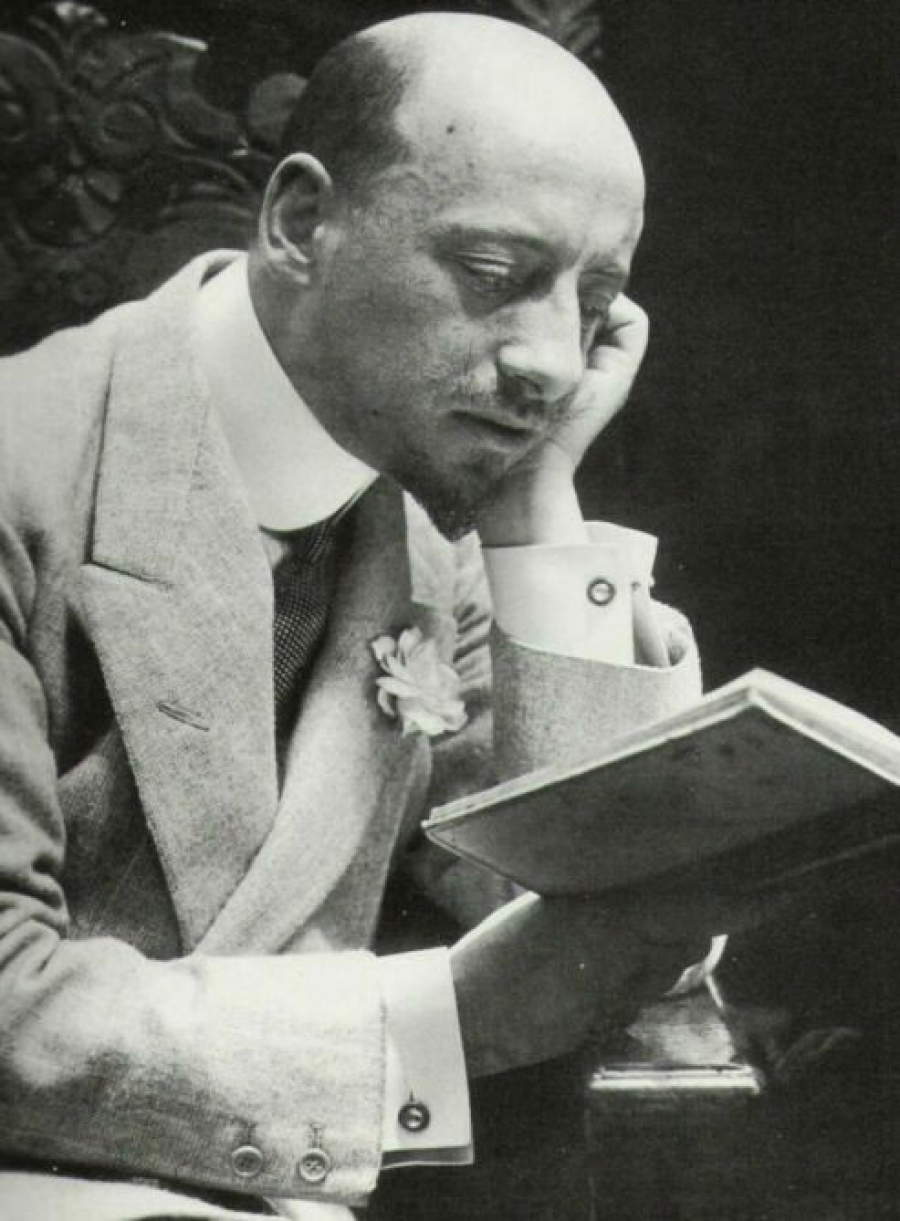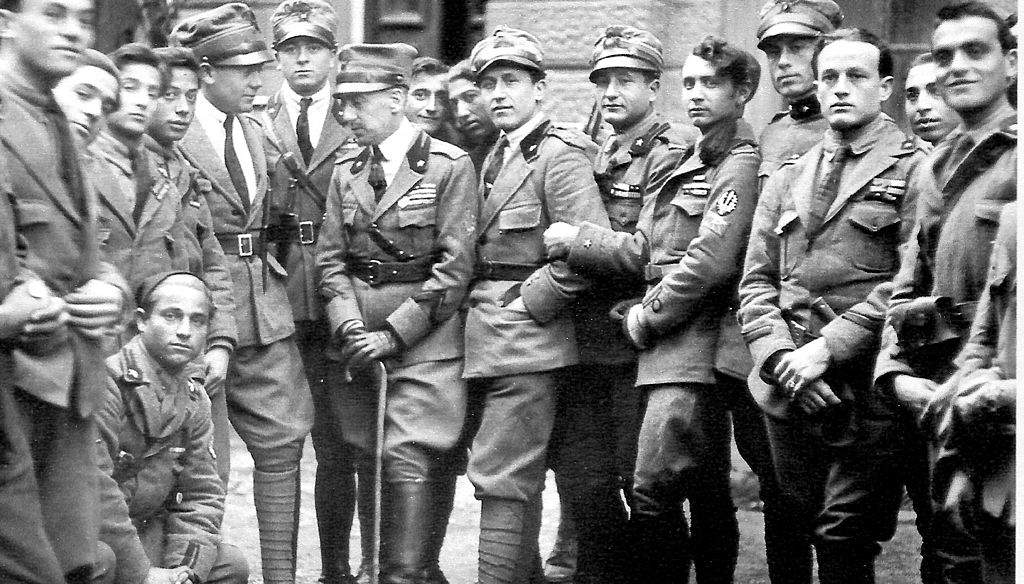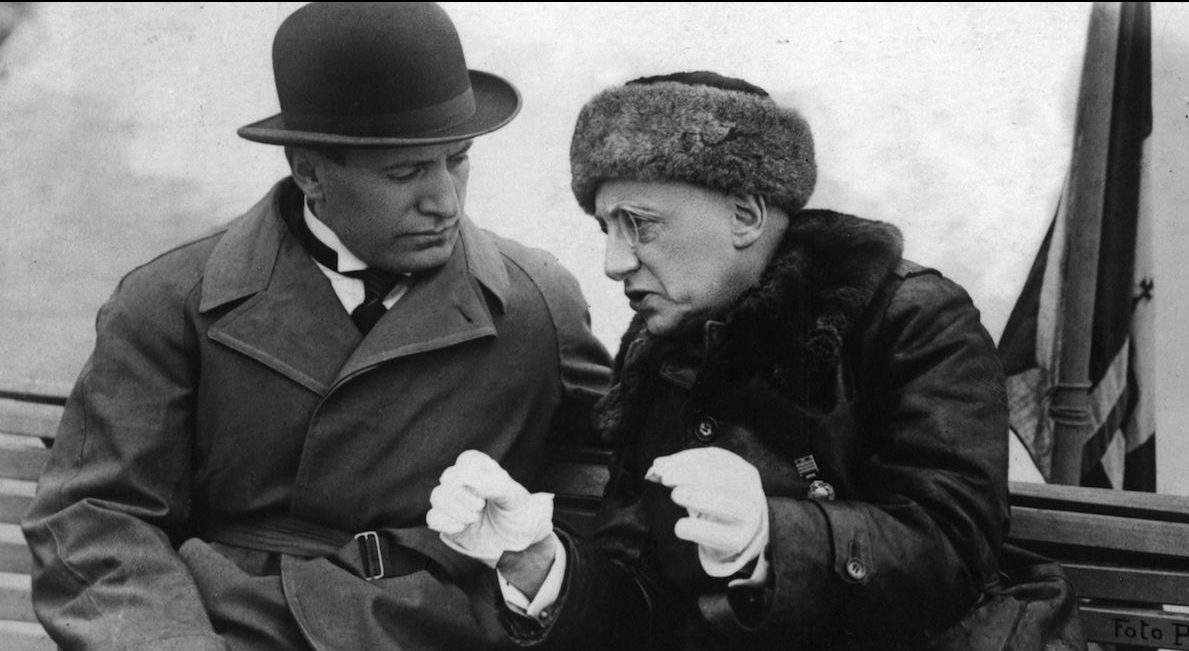No to the sanctification of Gabriele d'Annunzio, but no also to the simplifications of Tomaso Montanari
It may also make sense to take the side of those who do not welcome the idea of installing a monument to Gabriele d’Annunzio in Trieste: it is not the right historical moment, and at a time of resurgent nationalism the act of the local municipal administration could be seen as provocative. Matter of prudence, in short. However, it is certain that the reasons for taking a stand against the monument cannot be those put forward by Tomaso Montanari in his article published last Sept. 2 in Il Fatto Quotidiano, and this for several reasons, which, however, basically boil down to one: from Montanari’s piece, the figure of Gabriele d’Annunzio comes out greatly simplified, if not trivialized, and the complexity of his relationship with fascism is resolved in a few assumptions that not only do not reconstruct with due rigor (which should be maximum even and especially in an article intended for a wide audience, such as that of Il Fatto Quotidiano) the relationship that d’Annunzio had with Fascism, but, even worse, tend to frame this link in a sort of Manichean vision of culture during the twenty-year period.
Already beginning with words taken from the Manifesto of Fascist Intellectuals is an operation that seems ill-timed, since it would be necessary to proceed with due contextualization, at least at a basic level (for example, dividing those who adhered out of conviction from those who instead adhered out of convenience: an operation that is also certainly trivializing if produced with the goal of drawing up a list, but which can nonetheless give a minimal idea). Especially if Montanari then decides to brand all those who adhered to the Manifesto (Pirandello, Ungaretti, Corrado Ricci are mentioned) as “men of shit” by taking up a phrase by Piero Calamandrei (“these are the men of shit who represent Italian culture under Mussolini”), extrapolated, however, from the context in which it was written by the great Florentine constituent father: Calamandrei was not referring to the signatories of the manifesto, but was more simply commenting in his diary on an episode involving Pietro De Francisci, who in 1939, the year to which the sentence dates, was president of the Fascist Institute of Culture, and who’had been the object of mockery by Achille Starace at a meeting of Fascist hierarchs (De Francisci had declared that, given his age and health condition, he did not feel able to cope with the athletic tests required of hierarchs, and for that reason he had been mocked by the then secretary of the Pnf: his failure to move any word to counter Starace had earned him the contemptuous epithet of Calamandrei, who, however, in his diary decided to address it not to De Francisci but to a generic plurality, as is customary in colloquial contexts).
It is one thing, therefore, to speak, for example, of Margherita Sarfatti, who had a particularly important public role in promoting Fascist culture (even if historiography has recently reconsidered her relations with the regime, by which she herself was later affected); it is quite another to remember an intellectual like Lionello Venturi, who signed the manifesto of Fascist intellectuals, and yet in ’31, although not hostile to Fascism (“when I left Italy,” he would later write, “of antifascist political experience I had only that of participation in the Alleanza Nazionale where I had been placed by my very dear friend Lauro de Bosis”), refused to take the oath to fascism imposed on university professorsî, and this in any case on the basis of rather controversial decisions (further demonstrating the senselessness of dividing the good from the bad on the basis of a signature), still another account is to examine the role of Gabriele d’Annunzio who, as should be known to most by now, if he cannot be considered an anti-fascist (that would be ridiculous), likewise cannot be framed tout court within the ranks of fascism either (and one should also not forget that even to speak generically of “fascism” and “anti-fascism” is, in itself, a trivializing operation).
 |
| Gabriele d’Annunzio in 1904 |
 |
| Gabriele d’Annunzio in Fiume with a group of legionnaires |
 |
| Gabriele d’Annunzio with Benito Mussolini |
Meanwhile, d’Annunzio was not, as Montanari seems to allude to, a “supporter of the squadristic violence of a fascism that had already killed Giacomo Matteotti” (moreover, the headliners of Il Fatto Quotidiano make a glaring error when they attribute to d’Annunzio the quote on squadrism taken from the Manifesto of Fascist Intellectuals whose text, as everyone should know, was drafted by Giovanni Gentile). It is true that many of d’Annunzio’s legionaries went to replenish the ranks of the fascist squads and that several historians (Duggan, Pupo, Tacchi and others) have identified in theFiume experience (and, in this regard, one should also remember the Charter of Carnaro before composing rigid tables) some of the prodromes and some of the inspirational motives of future Fascist squadrism, but many also agree in attributing to d’Annunzio a kind of aversion to squad violence. When d’Annunzio wrote Il libro ascetico della giovane Italia (The Ascetic Book of Young Italy) in 1923, he wondered if the invocation of the spirit could have power “over so much agglomerated flesh, over so much overabundance of bone and muscle, over so much readiness of manly counsel, over so much melee and brawl of toothed appetites.” one has often wanted to glimpse, in this metaphor, a clear allusion to fascist gatherings and the violence of its squads.
Similarly, one cannot associate negatively, with such granitic certainty, the name of d’Annunzio with that of Matteotti, if it is true that, when in a letter sent on July 23, 1924, to Major Enrico Grassi he said he was “very sad about this fetid ruin,” the poet meant to refer to theassassination of the Socialist deputy, as many have interpreted (although, for the sake of completeness of information, it will be necessary to specify that, according to others, d’Annunzio, with his phrase, intended to paint a very rapid fresco of the situation that Fascism was experiencing at that time: in any case, it is certain that these words of his, having gained resonance since Tito Zaniboni publicly disseminated them, caused a sensation).
The point is that, knowing the character and his biography, one cannot expect from d’Annunzio the phrasing of an assessor, or at most that of an observer openly taking a position for or against, except in rare cases: d’Annunzio was an artist all his life, even when he wore the clothes of the publicist, the war volunteer, the deputy, the major of the Royal Army, the Commander of the Carnaro Regency. In addition, from 1922 onward he had also decided to discard any garb other than that of the artist (still from the Ascetic Book: “I have turned away from me any glow of glory. I no longer love glory; and I am cruel and ashamed to have loved it, to have followed it. [...] I have no ambition of lordship, nor of praise, nor of favor, nor of wealth. [...] I have sold my horses of arms to plow people”; and later, on September 5, 1924, in an open letter to the Province of Brescia: “to all politicians, friend or foe, it is therefore convenient now to despair of me. I love my renewed art, I love my donated home. Nothing foreign touches me, and of every judgment of others I laugh.”).
And if it is really necessary to attach a label to him, the most fitting one is perhaps still the one that would have been sewn by Montanelli in the 1970s, when in one of his essays on the early years of Fascism he asserted that d’Annunzio often hurled strides against Fascism, without, however, renouncing his part as “oracle above the fray.” a role, that of the"oracle," which suited him more than anyone else, and which the poet sought to interpret with the greatest possible constancy and rhetoric.
Finally, the assumption with which Montanari closes his article seems to be permeated with that Manichaeism mentioned at the beginning: in private, d’Annunzio expressed contempt for “governmental fascism” (an assumption that is, moreover, not entirely true, since some of the regime’s decisions were, on the contrary, appreciated by the poet), but in public he did not speak out. Ergo, d’Annunzio would represent “in the worst way the betrayal of the intellectual.” Obviously, the story went in a much more complex way than how Montanari reduces it in the final lines of his piece: in context it would also be necessary to speak of Mussolini’s fears of d’Annunzio, of the fact that the poet received substantial stipends, yes, but was also constantly watched, of the fact that while never siding with the Fascists he professed loyalty to Mussolini (except sometimes not following up on his word, as the case of the letter to Major Grassi shows), of his willingness to withdraw from the political arena and to profess a long intellectual isolation (though interrupted from time to time).
Of course, we all agree that the figure of d’Annunzio should not be among those eligible for "sanctification." But we should also agree that the complexity of his biographical, artistic and political story cannot be reduced into quick and notionistic schemes divided into positive and negative poles.
Warning: the translation into English of the original Italian article was created using automatic tools. We undertake to review all articles, but we do not guarantee the total absence of inaccuracies in the translation due to the program. You can find the original by clicking on the ITA button. If you find any mistake,please contact us.




























